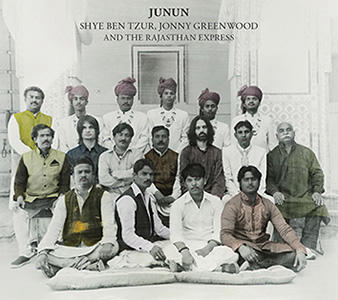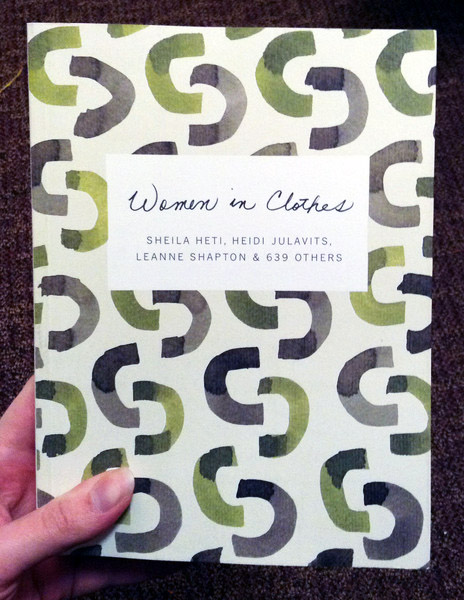 2015 kept us all busy! Our next blog post, containing our annual report, will show you how and why. But somehow along the margins we found chances to read books and articles, watch movies and tv shows, listen to music and podcasts, and consume other assorted media to inspire us and keep us going. Here’s a recap for the last month bleeding into the last year.
2015 kept us all busy! Our next blog post, containing our annual report, will show you how and why. But somehow along the margins we found chances to read books and articles, watch movies and tv shows, listen to music and podcasts, and consume other assorted media to inspire us and keep us going. Here’s a recap for the last month bleeding into the last year.
Tomy
I’ve been obsessed with an Animal Planet show called Monsters Inside Me. It’s a show about potentially deadly parasites. Premise one: First-worlders contract parasites while attempting to prove they’re capable of vacationing in unsanitary areas around of the world. Premise two: Unsuspecting first-worlders eat foods that are contaminated, raw, or improperly cooked. Episodes include: sick people, dramatizations, menacing music, medical specialists, formulaic TV-show suspense, and a hunky/nerdy bat biologist. Super fun!
Reading poetry by Franz Wright because he recently died.
Also reading/studying Fine Gardening magazine and This Old House magazine because I’m chin-deep in home renovation.
Taylor
I read: Jane: A Murder by Maggie Nelson
Libra by Don Delillo
What the Living Do by Marie Howe
…and listened to Lana Del Rey’s newish album Music to Watch Boys To
 Thea
Thea
I’ve been trying to ignore this book series by Elena Ferrante, but now I’m intrigued after this VF article.
Finally got around to reading Every Last Tie, an amazing and incredible recollection/reflection by the brother of the Unabomber.
Happy to have discovered the wild & wacky history of coloring books.
Jeff
Can’t stop listening to the Junun album.
Also i’m finally getting around to listening to Four Tet.
Watched this crazy documentary about Scientology.
Joe
In November I resolved to read books faster than I accumulated them. So far I have been tremendously successful.
So You’ve Been Publicly Shamed
I should probably get it out of the way that Jon Ronson is my favorite author. His stirring mediations, objective analyses, and carefully considered conclusions feel like the journalistic work that I would be doing if my childhood had been more privileged, my dreams had been supported, and I had gone to college. Rather than regrets though, my lived experiences allow me to enjoy Ronson’s work for its brilliance and beauty. While Them, his look at hanging out with a dozen extremists of various kinds after 9/11, was an incredibly balanced work that offered deeper perspective about things we don’t get to hear much about, like The Bilderburg Group, this book takes his thinking and writing skills even further. Jon holds himself culpable as he criticizes the emergent culture on social media that leaps to attack a stranger before the evidence is on the table or sometimes even requested. He learns about himself when strangers create a Jon Ronson parody Twitter account. He takes a prolonged look at how the result of one bad joke can cost you your job, your friends, and your entire reputation. He examines the way that privilege can sometimes allow someone to recover from a public shaming and resume life as usual. And he evaluates how the distance between our self-image and the public’s image of us allows for shaming to affect us. It’s important to note that this book is as appropriately funny as it is clever and revealing. When Ronson works with Reputation.com to restore the future career of one young social worker, he simultaneously points out everything that is strange about the whole affair. Our culture rewards innocuous blandness and creating a new public persona for someone that has nothing shocking to say can restore credibility. At the same time, the man who seems to have suffered the least has a more interesting sex life than anyone I know so the book is fairly intriguing in its analysis. Most importantly, Ronson helps us take a more nuanced look at every situation without jumping to conclusions, which is something that would be good for all of us, whoever we are.
How To Ru(i)n A Record Label: The Story of Lookout Records
Larry Livermore has lived an almost unbelievable life. In these pages he recalls attending the original Woodstock, seeing the Supremes homecoming in early 1960s Detroit, witnessing MC5 at a battle of the bands on a tennis court, and joining the White Panther Party. Of course all of this could not prepare him for an even more regimented and controlled life in his depictions of a cultishMaximum Rocknroll house. While Larry deserves much credit for displaying the East Bay punk rock scene and reviving punk rock in a global way from 1987-1997, what’s interesting is what’s not in this book. Despite a long-passed statute of limitations, Larry does not address the rumors of whether Lookout was founded with money from pot sales as co-founder David Hayes alleges. Similarly to Bob Mould’s See a Little Light, we get to see Larry as an insecure, less-than confident individual who seems to be successful both because of and in spite of himself. While there is plenty of self-effacing commentary in these pages, Larry’s depictions of other people seem less aware of the implicit power dynamic in their drastic age differences or how others might be reacting to his unique personality. A stirring commentary on building a scene in a material way, it’s compellingly well written and a perfection companion to Punk USA: The Rise and Fall of Lookout Records, with a parallel narrative. It’s the story of how one off-the-grid hippie-turned-punk agitator, despite all odds, managed to introduce the world to the likes of Green Day, Operation Ivy, Screeching Weasel, and a hundred other artists. And how an awkward relationship with being the boss and personality disputes that could ultimately disrupt all that had been built. This story is magical because it shows us that someone with enough stubborn passion can leave their mark on the world and write history and that the best things don’t last forever.
The Rosie Project: A Novel
I complained in the last chapter of Good Trouble about the lack of Aspies depicted in culture and media. So it was exciting and refreshing when our proofreader, Markell, recommended this book to me. Just so we’re on the same page, this is the third work of fiction that I’ve read in the last 25 years. It helps, of course, that the Aspergian literalist in this story could easily be based on my life. He rides his bike everywhere he goes, argues about the definition of a jacket with restaurant waitstaff, finds the emotional communications of others difficult to understand, and uses science as a way to find a suitable date. The narrative strikes me as completely lacking in class analysis and how the professor’s position is what has prevented him from having to face these revelations or his behavior earlier. Of course this book also ties up in a bow and a happy ending, which real lives often do not, but it was a refreshing change of pace. Every paragraph contains a clever reminder of what living with Asperger’s is like and there are constant surprises and plot twists throughout. I am left wondering if it would not be more effective to pick a real person and write a novelized biography of their life. In my experience, the events that happen in real life would often not be believable in fiction.
Making a Murderer
My friend April recommended this ten-hour Netflix documentary to me. To their algorithm’s credit, Netflix had also figured out that this would be something that I would be interested in. I don’t veer away from difficult subjects and this extensive review of the events and cases posed against Steven Avery were as much of an indictment against the judicial system as the actions of the allegedly crooked cops and prosecutor. Through extensive tampering with evidence, a couple cops and a small town courtroom was seemingly able to frame Avery for two separate crimes with extensive imprisonment while ignoring evidence about who the actual perpetrators were. Avery and his nephew who was also convicted both have low IQs and while well meaning, were quite prone to tampering by the police. Through It’s chilling and illuminating narrative about the flaws in the system and how class and status seem to have a greater access to power than truth or justice, these hard-working filmmakers will hopefully one day free Avery and his young nephew.
Elly
It’s cold which means a lot of time hunkering down to read. I’ve read a lot of books lately with the idea of learning new life and work skills. The best two have been Difficult Conversations (holy crap, there are some pretty basic things I’ve been missing), and a very unlikely favorite, Bobbie Thomas’s The Power of Style—my natural tendency is to gravitate towards jeans and t-shirts, which doesn’t really cut it everyday, so I set out to look for a book like Apartment Therapy but for clothes. Despite its bubble-gum, cake-makeup packaging, this book is the real deal. Thomas was a sexual assault crisis counselor before she became a tv personality and stylist, and her message is all about using clothing intelligently to communicate the messages of your choosing to the world and to yourself. In the same vein, I reread big chunks of Women in Clothes, which is a nicely designed look through hundreds of eyes and formats at the huge variety of perspectives and practices and meanings we put into what we wear.
Then I needed an antidote to all this earnest instruction, so I got started on Patti Smith’s new memoir M Train, which my sister sent me for xmas (good call, kid). Patti Smith waxes exuberant about Murakami, who I’ve been ambivalent about, so I checked out his recent Colorless Tsukuru Tazaki. In this book, he finally stopped trying to tie his plot up into a neat, tidy bow and the result is super powerful—I’m still thinking about the story, weeks later.

 2015 kept us all busy! Our next blog post, containing our annual report, will show you how and why. But somehow along the margins we found chances to read books and articles, watch movies and tv shows, listen to music and podcasts, and consume other assorted media to inspire us and keep us going. Here’s a recap for the last month bleeding into the last year.
2015 kept us all busy! Our next blog post, containing our annual report, will show you how and why. But somehow along the margins we found chances to read books and articles, watch movies and tv shows, listen to music and podcasts, and consume other assorted media to inspire us and keep us going. Here’s a recap for the last month bleeding into the last year. 